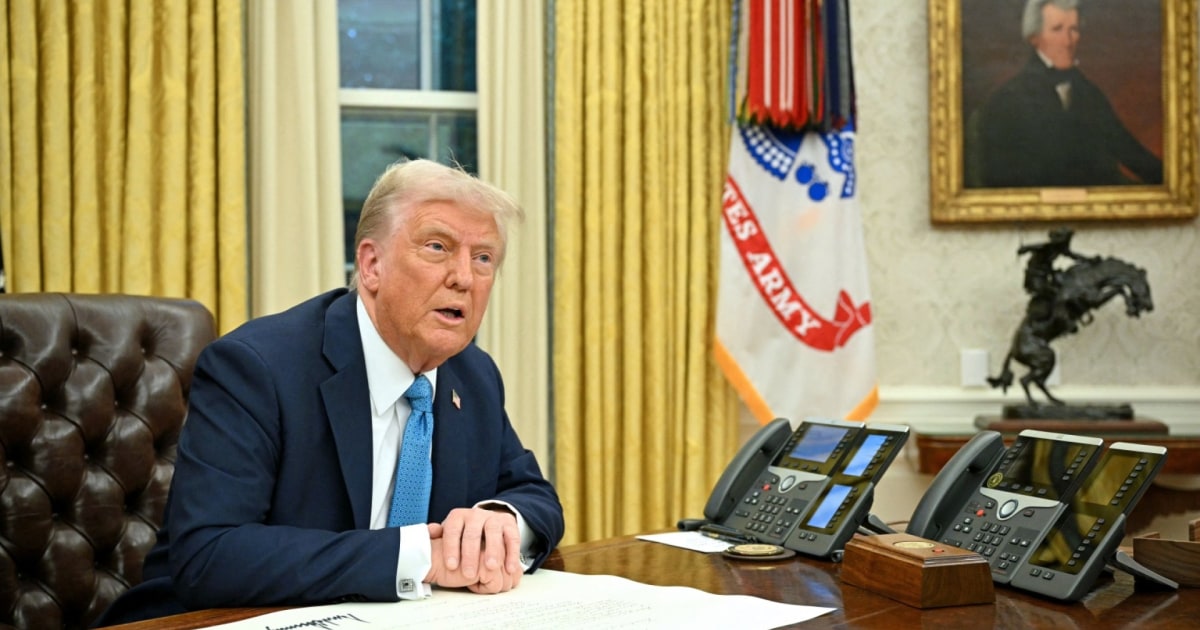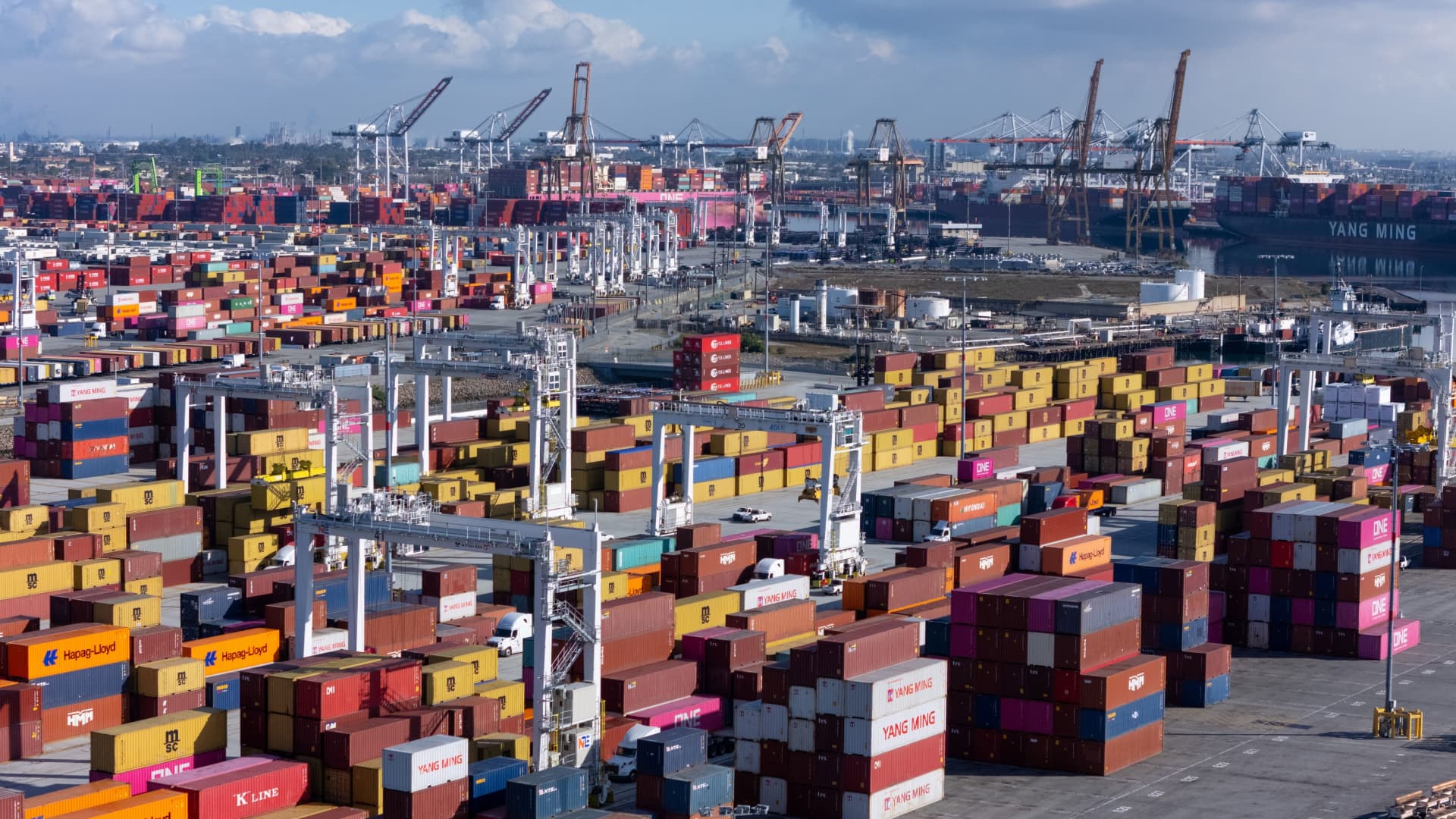Unpacking the Dark Side of Trump’s Trade Policies: A Deep Dive into Tariff Obsession
Chris Hayes has brought to light the troubling repercussions of former President Donald Trump’s intense focus on tariffs, a cornerstone of his trade policy. This obsession with imposing tariffs was not merely a strategic move; it represented a fundamental shift in how the United States engaged with global trade. While many hailed this approach as a means to protect American industries, a deeper examination reveals a complex web of consequences that could threaten long-term economic stability and international relations.
The Rationale Behind Tariffs
At its core, Trump’s trade policy was predicated on the belief that American workers were being unfairly disadvantaged by global trading practices. The administration argued that tariffs would level the playing field, particularly against countries like China, which were accused of engaging in unfair trade practices, including currency manipulation and intellectual property theft. By imposing tariffs, the Trump administration aimed to:
- Protect American jobs and industries from foreign competition.
- Encourage domestic manufacturing and investment.
- Reduce the trade deficit by making imported goods more expensive.
However, while these objectives may sound plausible, the reality of implementing such a protectionist stance is riddled with complications.
The Economic Fallout
One of the most immediate effects of Trump’s tariff obsession was the disruption of supply chains. Many American companies, particularly in manufacturing, rely on global supply chains to source materials and components. By imposing tariffs on imported goods, the administration inadvertently raised the cost of production for these companies. As a result, several businesses faced tough choices:
- Increase prices for consumers, which could lead to reduced sales and profits.
- Absorb the increased costs, risking lower profit margins.
- Relocate production overseas to avoid tariffs, which contradicts the original intent of protecting American jobs.
This conundrum illustrates a critical flaw in the tariff strategy: while it aimed to protect certain sectors, it often harmed others, leading to a net negative impact on the economy. For example, industries such as agriculture and manufacturing faced retaliatory tariffs from countries affected by U.S. tariffs, leading to a decline in exports. Farmers found themselves in a precarious situation, as international markets became less accessible, resulting in lower revenues and potential bankruptcies.
Long-term Consequences for International Relations
Beyond the immediate economic effects, Trump’s trade policies have had profound implications for international relations. Historically, trade has been a catalyst for diplomatic engagement and cooperation. However, the imposition of tariffs has often led to strained relationships between the U.S. and its trading partners.
The ongoing trade war with China serves as a prime example. Instead of fostering a constructive dialogue to resolve trade disputes, the tariffs resulted in escalating tensions, with both nations imposing retaliatory measures. This not only affected bilateral trade but also had ripple effects on global supply chains and economic stability.
Furthermore, America’s withdrawal from multilateral trade agreements, such as the Trans-Pacific Partnership (TPP), indicated a retreat from long-standing commitments to cooperative trade practices. This shift has left a vacuum that other nations are eager to fill. Countries like China have sought to expand their influence through alternative trade agreements, effectively sidelining the United States in key global economic discussions.
The Social Impact of Protectionism
While the economic and diplomatic ramifications of Trump’s tariff obsession are significant, the social implications also warrant attention. Tariffs can exacerbate income inequality, as they disproportionately affect lower- and middle-income families. Higher prices on imported goods, such as electronics and clothing, hit these households hardest, which rely more on affordable products.
Moreover, the promise of job protection through tariffs is often illusory. While some jobs in specific industries may benefit from reduced competition, many other sectors that rely on global trade could suffer job losses. The net effect can be job displacement and insecurity, leading to a more volatile labor market.
Looking to the Future: A Balanced Approach
As we analyze the dark side of Trump’s trade policies, it becomes evident that a more balanced approach to trade is necessary. Instead of an obsession with tariffs, policymakers should consider strategies that promote fair trade while also addressing the legitimate concerns of American workers. This could include:
- Investing in workforce development to help workers transition into new industries.
- Enhancing trade enforcement mechanisms to combat unfair practices without resorting to blanket tariffs.
- Reengaging in multilateral trade agreements to strengthen economic ties and promote cooperative solutions.
In a globalized world, the challenges of trade are complex and multifaceted. A protectionist approach may provide temporary relief but can lead to long-lasting negative consequences. By embracing a more nuanced understanding of trade, the U.S. can foster economic growth while maintaining healthy international relationships.
Conclusion
Trump’s fixation on tariffs has unveiled a myriad of challenges that threaten economic stability and international relations. While the intent to protect American jobs and industries is commendable, the execution has often left much to be desired. As we move forward, it is crucial to learn from these experiences and seek a balanced policy that prioritizes both domestic interests and global cooperation. The world is interconnected, and navigating the complexities of trade requires a thoughtful approach that transcends simplistic solutions.
In conclusion, understanding the implications of tariff obsession is essential for shaping future trade policies that can uphold American interests while sustaining global economic harmony. Only through collaboration, innovation, and strategic engagement can the U.S. hope to reclaim its position as a leader in international trade.
See more CCTV News Daily



